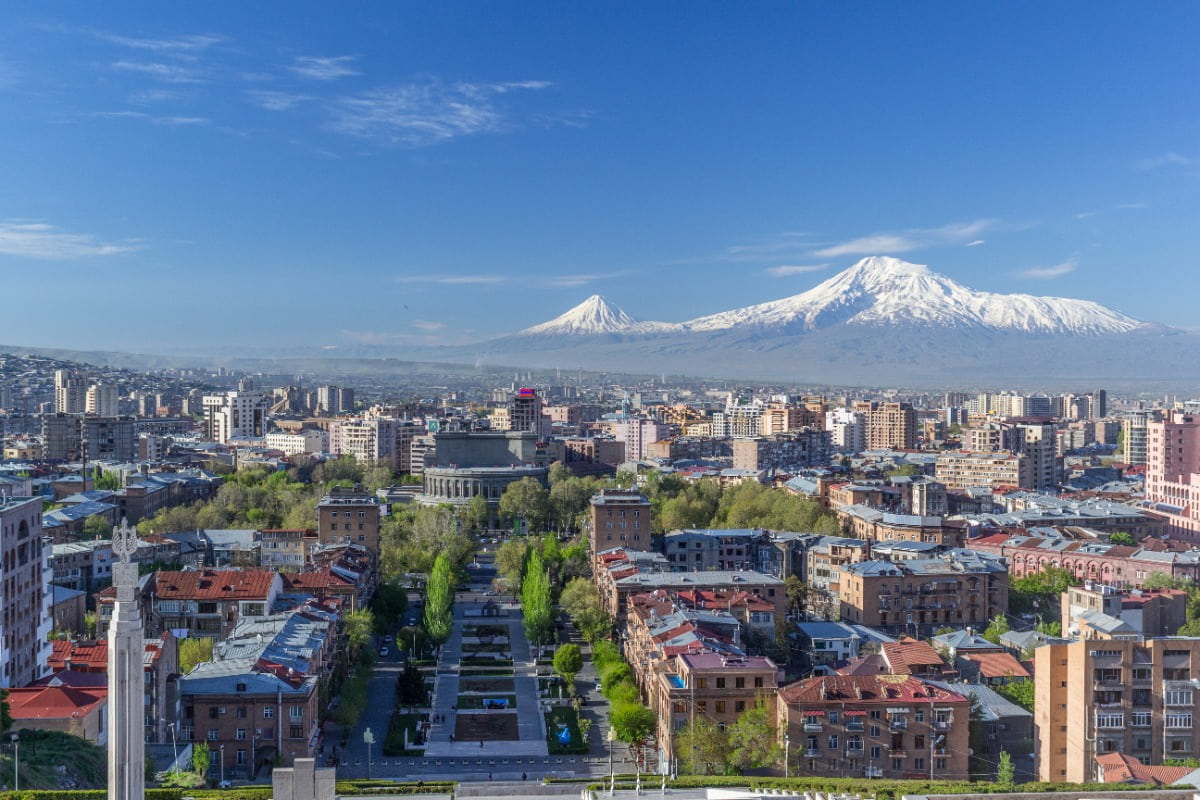
Before becoming a foreign investor in any country, it is necessary to familiarize yourself with the investment policy, business practices, and guarantees of foreign investors in that country. Within the framework of this article, we will review the legal framework defining guarantees for foreign investors in RA, which will help the investors to properly evaluate their risks.
Considering the challenges we are currently facing, the main goal of Armenia’s investment policy is to create a favorable investment and business environment, increase the transparency of the normative-legal field, reveal the country’s competitive advantages, and develop market infrastructures in order to increase the volume of foreign investments.
Today, the Government of the Republic of Armenia is circulating the RA Investment Policy Strategy and the Action Plan, which provides government support for investment projects.
As part of the implementation of the investment policy, the Republic of Armenia applies the principles of the “open door”, the liberalization of investment activities, the definition of the national foreign investment regime, and the protection of investments in accordance with international best practices.
There are both international and national frameworks for foreign investment regulations.
A framework of international regulations related to foreign investment
Considering the necessity of foreign investments, it becomes important to study the international legal regulations related to the latter. In this regard, it is essential to refer to international multinational treaties, treaties with investment provisions (TIPs) and bilateral investments treaties (BITs). The Republic of Armenia is a party to more than 40 BITs, and 8 TIPs. Among the multilateral agreements, we can mention the ones signed with the Russian Federation, the USA, China, Georgia, Italy, France and a number of other countries, and from the bilateral agreements, the Armenia-Singapore Trade in Services and Investments Agreement, the EAEU Agreement, etc. The latter can be found at the following link: https://investmentpolicy.unctad.org/country-navigator/11/armenia. Let us introduce some of the bilateral investment treaties in more detail.
The U.S.–Armenia BIT, signed by the United States and Armenia in 1992 and in force since 1996, protects US investment in Armenia. The latter aims to protect investment abroad, encourage the adoption of market-oriented domestic policies that treat private investment in an open, transparent, and non-discriminatory way, and support the development of international law standards consistent with these objectives. This treaty also provides avenues for the resolution of investment disputes.
This BIT provides the following standards of treatment:
- National treatment (NT) which is a principle that says countries should treat imported goods, services and intellectual property the same way they treat their own;
- Most-favored-nation treatment (MFN), it requires members to accord the most favorable tariff and regulatory treatment given to the product of any one member at the time of import or export of “like products” to all other members
- Fair and equitable treatment (FET), it means that each party shall at all times accord to covered investments fair and equitable treatment and full protection and security, and shall in no case accord treatment less favorable than that required by international law.
- Prohibition on unreasonable, arbitrary or discriminatory measures, this provides that neither party shall in any way impair by unreasonable and discriminatory measures the management, conduct, operation, and sale or other disposition of covered investments.
- Umbrella clause by which a state agrees to comply with all of its obligations owed to foreign investors.
In addition to providing for national treatment and most-favored-nation treatment, the BIT sets out guidelines for the settlement of disputes involving the governments of either party.
Such standards are also envisaged in the BITs with France, Canada, United Kingdom etc.
In Armenia, the Law “On Foreign Investments” (hereinafter referred to as the Law) is applied to protect the rights of foreign investors.
Who is considered as a foreign investor under the Law?
A foreign investor is considered:
- foreign country;
- any foreign legal entity;
- foreign citizen;
- a person without citizenship;
- a citizen of the Republic of Armenia permanently residing outside the territory of the Republic of Armenia;
- international organization
which makes an investment in the Republic of Armenia in accordance with the legislation of its location.
What kind of investment can a foreign investor make?
Any type of property, including financial means and intellectual property, may be invested by above-mentioned persons. Such property must be directly invested by the foreign investor in the field of entrepreneurial or other activities carried out in the territory of the Republic of Armenia, the ultimate goal of which must be to make a profit or achieve another useful result.
What guarantees are provided for foreign investors?
Do foreign investments have the same legal regime?
The legal regime of foreign investments and related to them in the Republic of Armenia cannot be less favorable than the regime of property, property rights and investment activity of citizens, enterprises, institutions and organizations of the Republic of Armenia. That is, foreign investors’ profits, legally obtained funds, independent management of their bank accounts, repatriation of funds related to foreign investments and free conversion of foreign currency are guaranteed. Privileges may be established for foreign investors based on the most important areas of social and economic development. In addition, the reverse process may occur, that is, the activities of foreign investors may be restricted or prohibited for reasons of national security.
What happens in case of legislative changes?
The legislation of the Republic of Armenia has also established another guarantee for foreign investors, in particular, in the event of legislative amendments, within 5 years from the moment of investment, at the request of the foreign investor the legislation in force at the time of the investment is applied (grandfather clause).
Can foreign investments be nationalized or confiscated?
Foreign investments in the Republic of Armenia are not subject to nationalization, nor is it possible for government agencies to confiscate foreign investment.
If damage is caused to foreign investors as a result of illegal actions by RA state agencies or their officials, will they be entitled to compensation?
Yes, the Law stipulates that foreign investors have the right to judicial compensation for material and moral damages, including loss of profit.
If I am a foreign investor, can I receive tax benefits?
Armenia is one of the countries with the lowest tax burden in the world, offering a flexible tax system for small, medium and large investments. From the point of view of the attractiveness of the tax system, the Republic of Armenia ranks 52nd among 189 countries with 81.5 points out of 100.
The Doing Business 2020 report states that Armenia made paying taxes easier by extending value added tax cash refunds to cases of capital investment (you can find the mentioned report here, page 88).
Are there any areas in RA where a foreign investor will have privileges compared to other areas of RA?
Yes, those areas are called free economic zones (FEZs), which are regions where business and trade laws are different from the rest of the country. FEZs in Armenia provide a unique opportunity for entrepreneurs to establish business in strategically important sectors of the economy, pay lower tariffs, produce and export.
Companies granted permission to operate in free economic zones can benefit from profit tax, VAT, customs duty, and property tax privileges.
What mechanisms exist to prevent investor-to-investor disputes and to respond to investor complaints?
All disputes related to foreign investments that arise between the Republic of Armenia and a foreign investor are subject to consideration in the courts of the Republic of Armenia. According to the data available on the website www.doingbusiness.org , the average duration of court procedures is up to 570 days, although taking into account our practice, we can state that two years is the approximate minimum duration of court proceedings. Therefore, in case of mutual agreement, the parties can decide to settle disputes through commercial arbitration either abroad or in RA. In addition to the mentioned options, the parties can also apply to the arbitration of the International Center for Settlement of Investment Disputes (ICSID). The International Center for Settlement of Investment Disputes is an autonomous international institution that is part of the World Bank Group of Organizations, which are specialized institutions of the Organization United Nations. The purpose of the ICSID is to provide legal opportunities for judicial processes and reconciliation of parties in international investment disputes. Among the investment disputes, we can highlight the case Borkovsky and Russia FZE vs. Armenia (2018). The submitted claim stemmed from the alleged violation of concession agreements by the RA Government, which were granted to the plaintiffs by applying to other companies for the implementation of infrastructure projects. The court made a decision in favor of RA, commenting that no violations of the rights of foreign investors were allowed by the state.
Can foreign investments in RA be made in foreign currency?
According to the current regulations, monetary (monetary) investments in the statutory and share capital of legal entities in the territory of the Republic of Armenia are carried out in the AMD.
Thus, we can state that Armenia is a small, but favorable country for foreign investors. If you have decided to invest in the Republic of Armenia, our team of lawyers is ready to provide you with legal advice :
- in providing you with the legal opinion you need before the investment stage, outlining the risks and opportunities relevant to your own business ;
- in avoiding legal risks arising during investments ;
- in the process of using tax benefits ;
regarding the selection of existing free economic zones in RA.







